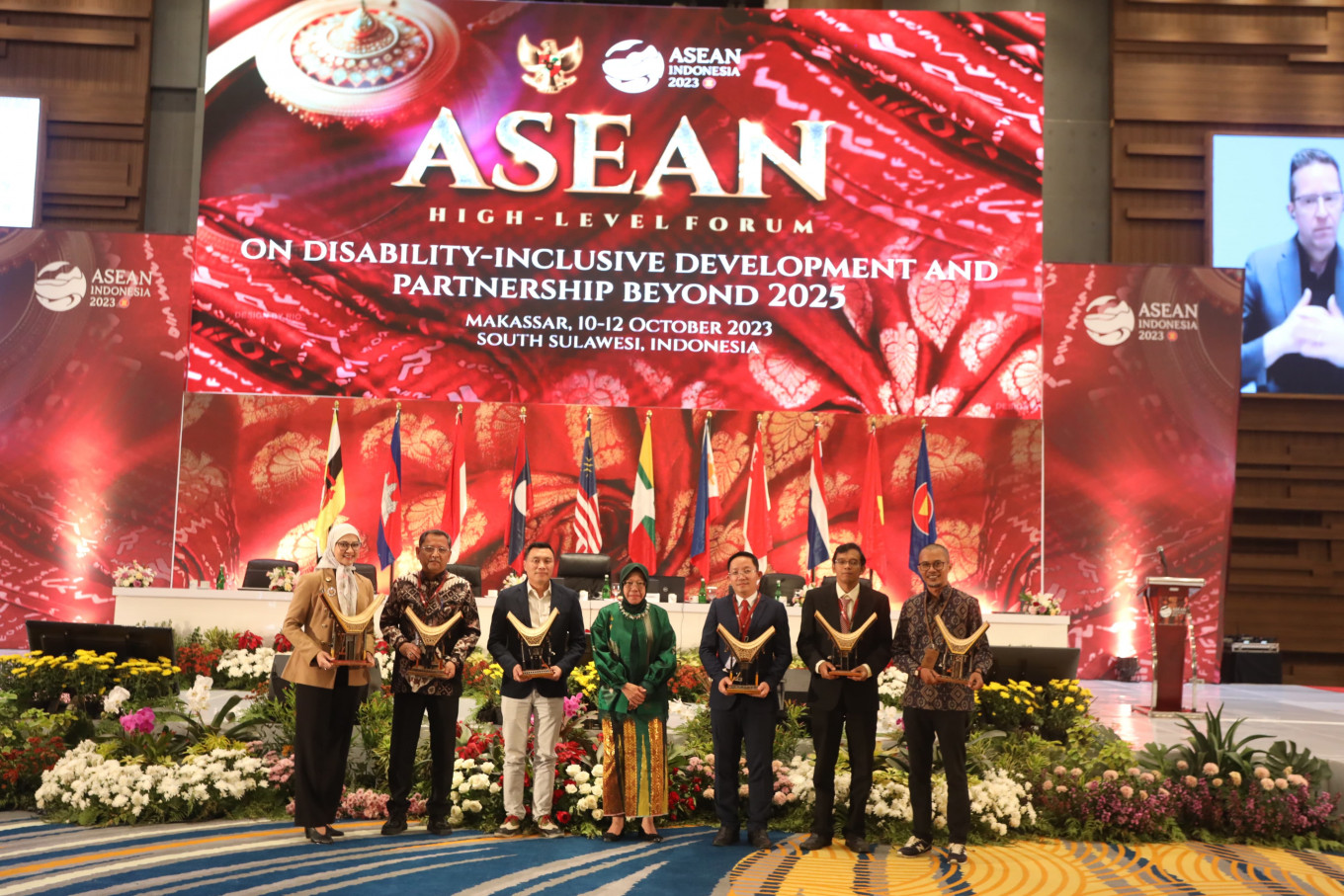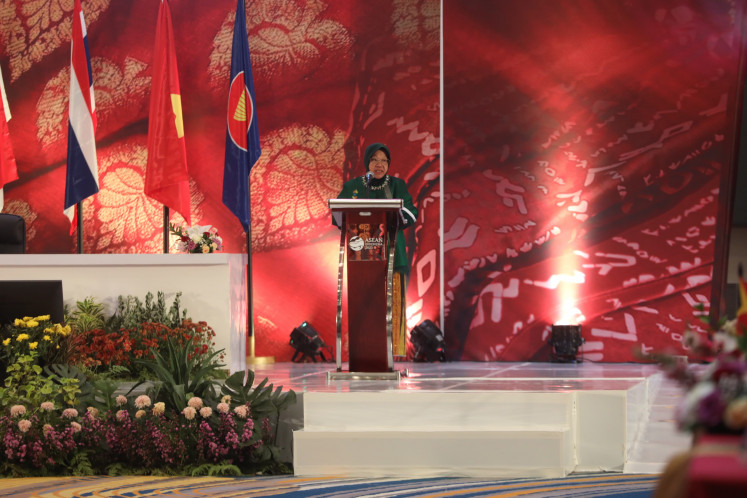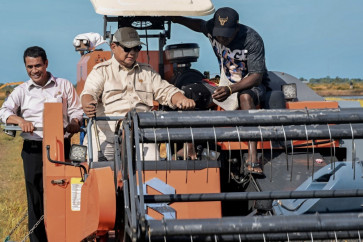Popular Reads
Top Results
Can't find what you're looking for?
View all search resultsPopular Reads
Top Results
Can't find what you're looking for?
View all search resultsASEAN produces ‘Makassar Recommendations’ for persons with disabilities
ASEAN has produced the "Makassar Recommendations" to strengthen its commitment to empowering, realizing inclusivity and elevating the dignity of persons with disabilities.
Change text size
Gift Premium Articles
to Anyone
A
SEAN has produced the "Makassar Recommendations" to strengthen its commitment to empowering, realizing inclusivity and elevating the dignity of persons with disabilities. The document was produced during the ASEAN High-Level Forum on Disability, Inclusive Development and Partnership Beyond 2025 on Oct. 10-12 in South Sulawesi’s provincial capital of Makassar.
The document was formulated from draft recommendations submitted by around 200 delegates from ASEAN member states who attended the forum, which is part of a series of events under Indonesia’s chairmanship this year. The ASEAN Secretariat, the ASEAN Disability Forum and various disability organizations were also represented at the forum.
In addition to ASEAN delegates, the forum also involved participants from Australia, the United Kingdom, the United States and various other partners.
Together, the forum participants put forth innovative strategies to realize socioregional inclusiveness, to empower persons with disabilities and to strengthen partnerships, with a view to ASEAN becoming the “epicentrum of inclusive and sustainable growth”.
After working two days, the forum finally produced the Makassar Recommendations, containing 10 recommendations.
The final recommendations were read out by National Commission for Disabilities (KND) commissioner Eka Pratama before the forum closed on Oct. 11.
The 10 recommendations are first, to accelerate the implementation of the ASEAN Enabling Masterplan 2025 by mainstreaming the rights of persons with disabilities in ASEAN; second, to further support reviewing and reporting on the implementation of the ASEAN Enabling Masterpan 2025 through the inclusive participation of persons with disabilities.
Third is to ensure disability-inclusive development as a fundamental part of the ASEAN Community Vision 2045. Fourth is to encourage ASEAN’s dialogue partners to mainstream the empowerment and rights of persons with disabilities through collaboration with ASEAN, including in providing disability-inclusive infrastructure.
Fifth is to provide more innovative social welfare and development policies to empower and protect the rights of persons with disabilities. Sixth is to increase joint efforts to ensure equal participation of and access for persons with disabilities in public services, and to eliminate barriers to stigma and discrimination in sectors such as education, health and employment.
Seventh is to strengthen efforts to provide better and more inclusive disability data, while eighth is to strengthen access to supporting need-appropriate technology to increase access to inclusive education, health interventions, employment and entrepreneurship.
Ninth is to strengthen public understanding and awareness of persons with disabilities and their rights, as well as to counter negative perceptions and to encourage mutual respect and understanding.
Finally, the tenth recommendation is to encourage the business sector to commit to promoting and implementing disability-inclusive business models and value chains, as well as commit to supporting better access to employment for persons with disabilities, including entrepreneurship.
In addition to producing the Makassar Recommendations, the participants expressed their appreciation for the Indonesian government, especially the Social Affairs Ministry, for conducting the ASEAN High-Level Forum.
On disability inclusion
In her closing speech, Social Affairs Minister Tri “Risma” Rismaharini noted that disability inclusion was an approach that needed to be mainstreamed across all sectors, including education, health, employment, politics, security, trade and investment.
“Disability-inclusive development requires collaboration and not working separately. The government, private sector and organizations for persons with disabilities must synergize and work together," said minister Risma.
The minister emphasized the need to increase the availability of disability data, so the appropriate policies and interventions could be implemented. Real efforts were also being made to advance entrepreneurship, technology and innovation to empower persons with disabilities and increase their independence, Risma said.
She also emphasized that all parties must work together to increase public awareness so that people did not see disabled persons as shameful, helpless or a burden.
"Society will see that persons with disabilities can also contribute and play an important role in society," Risma said.
Tendi Gunawan, national program officer at the International Labour Organization (ILO) Jakarta, said employment discrimination against persons with disabilities continued to prevail. However, persons with disabilities needed to be given the same opportunity as any prospective employees.
Angkie Yudistia, special staffer to the President, said all persons with disabilities could live independently.
"It remains for all parties to work together to provide opportunities and trust to persons with disabilities [so they can] work," she said.











